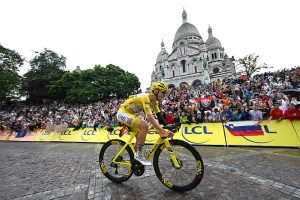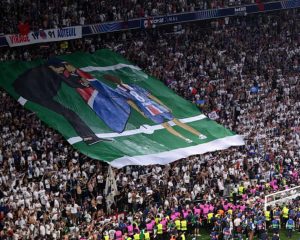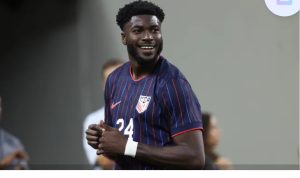
Nikola Vucevic and 3 Other Bulls Who Must Be Traded During the 2025 Off-season.
The Chicago Bulls are at a crossroads. After multiple seasons of underwhelming results, inconsistent rosters, and limited playoff success, the franchise must embrace a bold direction during the 2025 off-season. The team has hovered in mediocrity—neither bad enough to rebuild properly through the draft nor good enough to compete for a championship. To move forward, the front office needs to make tough decisions and prioritize long-term flexibility and player development. Trading key veterans, starting with Nikola Vucevic, is the logical next step.
1. Nikola Vucevic
Once seen as a stabilizing presence at the center position, Vucevic has become a symbol of the Bulls’ stagnation. Since arriving from the Orlando Magic in 2021, his production has been solid statistically but has not translated into team success. Now 34, Vucevic remains a capable offensive big with range and passing ability, but his defense continues to decline, and he struggles to anchor a playoff-caliber defense.
With two years left on his contract and averaging around $20 million per season, Vučević’s deal isn’t immovable. Playoff teams seeking a skilled backup center or additional frontcourt scoring—like the Mavericks or Heat—might be interested in his services. The Bulls must capitalize on any value he still holds and move him to free up minutes for younger bigs like Adams Sango or explore acquiring a more defensive-minded center via trade or free agency.
2. Zach Levine
Zach LaVine’s name has floated around trade rumors for over a year, and this off-season should be when those talks finally result in action. While supremely talented offensively, Levine has proven to be a high-volume scorer who struggles with consistency, health, and defense. The Bulls committed to him with a max contract, but the investment hasn’t paid off. LaVine’s scoring hasn’t led to wins, and his play style often conflicts with teammates, particularly DeMar DeRozan.
The Bulls must explore trade options that can either bring back young assets or at least clear LaVine’s massive contract off their books. Teams like the Lakers or Nets, looking for a scoring punch, could take a swing if the Bulls are willing to include draft compensation or take back contracts. Moving LaVine would signal a much-needed shift from trying to build around stars to developing a more balanced, team-first roster.
3. DeMar DeRozan (Sign-and-Trade Option)
DeRozan, an unrestricted free agent this off-season, has been Chicago’s most consistent and clutch player over the past few seasons. His leadership and midrange mastery helped keep the Bulls competitive, but at 35, he doesn’t fit the timeline of a rebuilding or retooling squad. Rather than re-signing him just for the sake of continuity, the Bulls should work with DeRozan on a sign-and-trade deal to a contender—possibly to the Kings, Lakers, or Knicks—who could use his experience and scoring.
A sign-and-trade allows the Bulls to avoid losing him for nothing and potentially gain a draft pick or a young prospect in return. While losing DeRozan would hurt in the short term, it opens up usage and development opportunities for younger wings like Dale Terry and rookie Julian Phillips.
4. Coby White
Coby White had a breakout 2024–25 season and emerged as one of the Bulls’ most improved players. He showed a newfound ability to manage the offense, defend with effort, and hit shots under pressure. So why trade him now? Because his value may never be higher.
White is entering the prime of his career, and if the Bulls are serious about rebuilding, they must consider selling high on players whose next contract may not align with their future plans. He could command interest from teams needing a starting-caliber point guard—like the Spurs or Jazz—and potentially bring back a late first-rounder or a young big.
This move isn’t about punishing White’s progress—it’s about capitalizing on it. If the Bulls commit to a full rebuild, then flipping a suddenly valuable asset like White may help accelerate that process.
The Bigger Picture: Time for a Reset
Holding on to a core of Vucevic, Levine, and DeRozan has brought minimal playoff success and few long-term benefits. Their contracts, injury histories, and overlapping offensive skill sets have stifled the team’s ceiling. Trading this veteran core allows the Bulls to prioritize cap flexibility, embrace younger talent, and position themselves for the 2026 and 2027 drafts.
Additionally, head coach Billy Donovan may need to be evaluated as part of this process. While he’s managed to keep the team competitive, a fresh voice might be better suited to developing younger players and instilling a modern, fast-paced style.
By moving Vucevic and the others, the Bulls can finally commit to a new direction. Chicago has the market size and fan base to rebuild quickly—but only if the front office shows the courage to dismantle a flawed roster and start anew.






